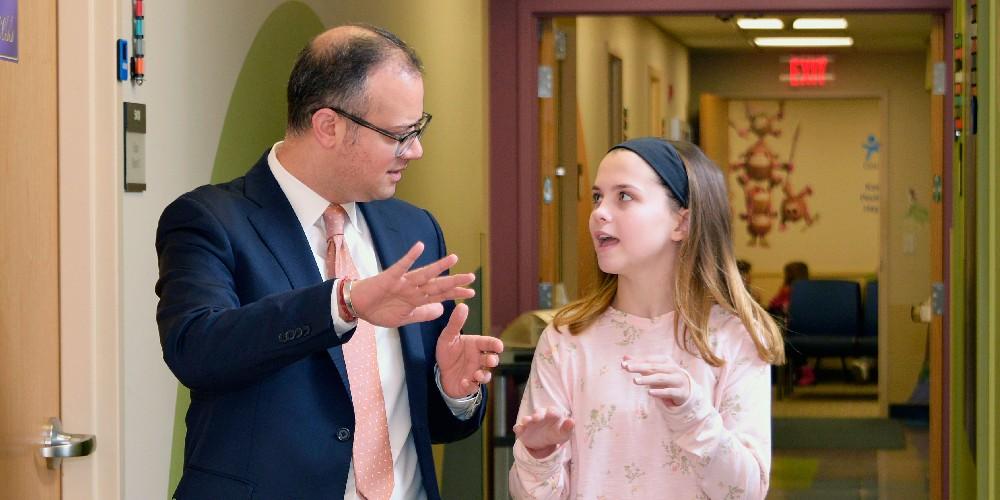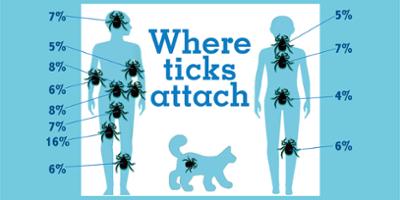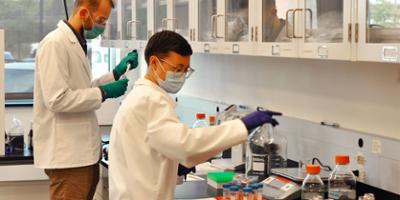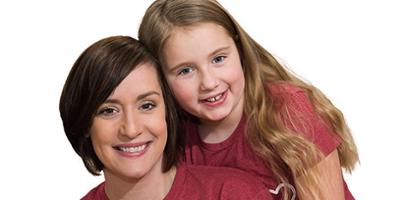You want to do what?!
Unusual treatment offers relief for recurrent bowel infections
BY AMBER SMITH
Ava Acker did not like what her doctor proposed.
To treat the recurrent infection she had — which was making her inflammatory bowel disease worse — pediatric gastroenterologist Prateek Wali, MD, wanted to try a fecal transplant.
He would infuse a stool specimen from a healthy donor during a colonoscopy procedure, providing her body with a dose of healthy bacteria.
“They explained it to me, and I was like ‘what?’” recalls Ava, 14, of New Hartford.
Wali explained that an overgrowth of a bacteria called Clostridium difficile, or C. diff, was causing inflammation and worsening her bowel disease. “A donor stool sample with a different ratio of bacteria will sometimes help to bring that ratio in your colon to a more normal level,” he said.
If Wali could get rid of the infection through the fecal transplant, the regular medication Ava was taking for her bowel disease should work better.
Once she understood how the procedure could improve her life, Ava was game to try it.
She only told her closest friends about her condition, and the treatment she would undergo.
How it started
Ava was in kindergarten when she started having chapped lips off and on. She describes: “They used to hurt so bad I couldn’t smile sometimes. I felt really tired all the time. And my stomach wasn’t right. I didn’t feel normal.”
Her mother, Debra Acker, who is a nurse, says it seemed like Ava used the bathroom a lot. In 2015, when she was 8, her pediatrician began suspecting she might have Crohn’s disease, a chronic bowel disease affecting the lining of the digestive tract.
“Everyone thought she was a nervous kid, and that wasn’t the case,” Debra Acker says.
They were referred to Wali, the division chief of gastroenterology at Upstate. They saw him on a Friday, and endoscopy and colonoscopy tests were scheduled for the following Monday. Those procedures allow doctors to examine the insides of the upper and lower gastrointestinal tracts to confirm the diagnosis of Crohn’s disease.
The cause of Crohn’s disease is unknown, but doctors believe a combination of genetics and environmental factors may play a role. A great uncle of Ava’s has Crohn’s disease. Her twin brother, Aidan, does not. The disease can be treated, but there is no cure.
Treatment options
Wali first prescribed a medication that’s also used to treat cancer. Later, he tried Ava on a variety of
medications that had to be infused over time, or injected, in a search to find something to help her long term. She also takes vitamins and follows a healthy diet.
Debra Acker says Ava keeps track of her medicine and diet on her own. “Dr. Wali wanted us to instill that in her, so she would be compliant as a teenager,” she says.
Wali says researchers are constantly learning about the microbiome in our gut, which varies tremendously from one person to another but includes a variety of bacteria and other organisms, many of which help protect the body from infection.
People can become sick if the ratio of bacteria is disrupted, which can happen while taking certain antibiotics or other medications. C. diff is one of the most serious infections that may develop, often bringing abdominal pain and cramping, diarrhea and fatigue.
When it became clear that Ava was battling C. diff, and medication was not helping, Wali proposed the fecal transplant. The procedure is designed to help restore intestinal balance and is approved by the Food and Drug Administration. Fecal transplants can be effective and even lifesaving for some patients, he says.
Among patients who did not have underlying bowel disease, fecal transplants had a 91% cure rate,
according to a study in the Journal of Pediatric Gastroenterology and Nutrition in March 2019. The cure rate was only 75 percent for those who had a bowel disease in addition to recurrent C. diff infection.
Finally, some relief
Ava underwent the fecal transplant in May 2019.
Her procedure was similar to a regular colonoscopy, during which time Wali placed the stool specimen in Ava’s colon. She describes feeling pressure when she initially woke up, and then it subsided.
Debra Acker noticed an improvement in her daughter almost immediately.
“She was a different kid. She had more energy. She looked better.” Ava stopped having to run to the bathroom seven or eight times a day, and she’s able to sleep through the night. She also regained the energy to go up and down stairs and carry her own books at school.
“I actually feel a lot better,” Ava says.
Where stool specimens come from
The stool specimens used for fecal transplants at Upstate come from OpenBiome, a nonprofit organization in Cambridge, Massachusetts, that was founded by a team of doctors, scientists and public health advocates.
They explain why they launched OpenBiome on their website, OpenBiome.org: “In 2011, a close friend contracted a C. diff infection after a routine surgery, and antibiotic treatment wasn’t working. For 18 months, we watched him suffer with this debilitating illness and several rounds of failed treatment. Knowing the evidence supporting the use of fecal transplantation to treat recurrent C. diff infection, he sought but couldn’t find a clinician who could perform the treatment for him. When he finally received a life-changing fecal transplant, the effect was remarkable. Within a couple of days, he had his life back.”
Today, the group collects donations of stool from healthy adults up to age 50 who live nearby and who pass a series of screening tests.
In addition to treating patients with C. diff infections at more than 1,000 medical centers, some specimens are used in more than 30 clinical trials as a treatment for ulcerative colitis, irritable bowel syndrome and other disorders.
Billions of bacteria
A gram of stool includes about 100 billion bacteria, 100 million viruses, 100 million microbes known as archaea (distant relatives of bacteria), 10 million cells from the lining of the gut, and a million spores of fungi, according to research published in the scientific journal PLOS Biology.
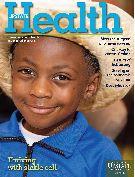
Read online at issuu.com
Subscribe to our printed publication in the mail or to receive an emailed electronic version.

